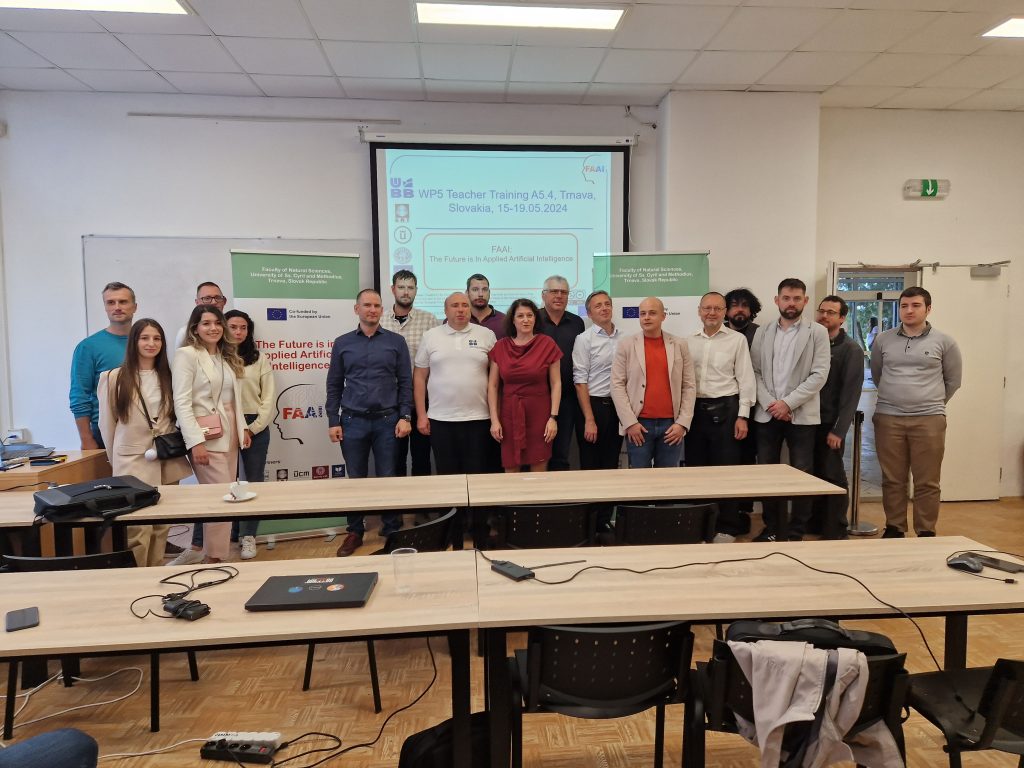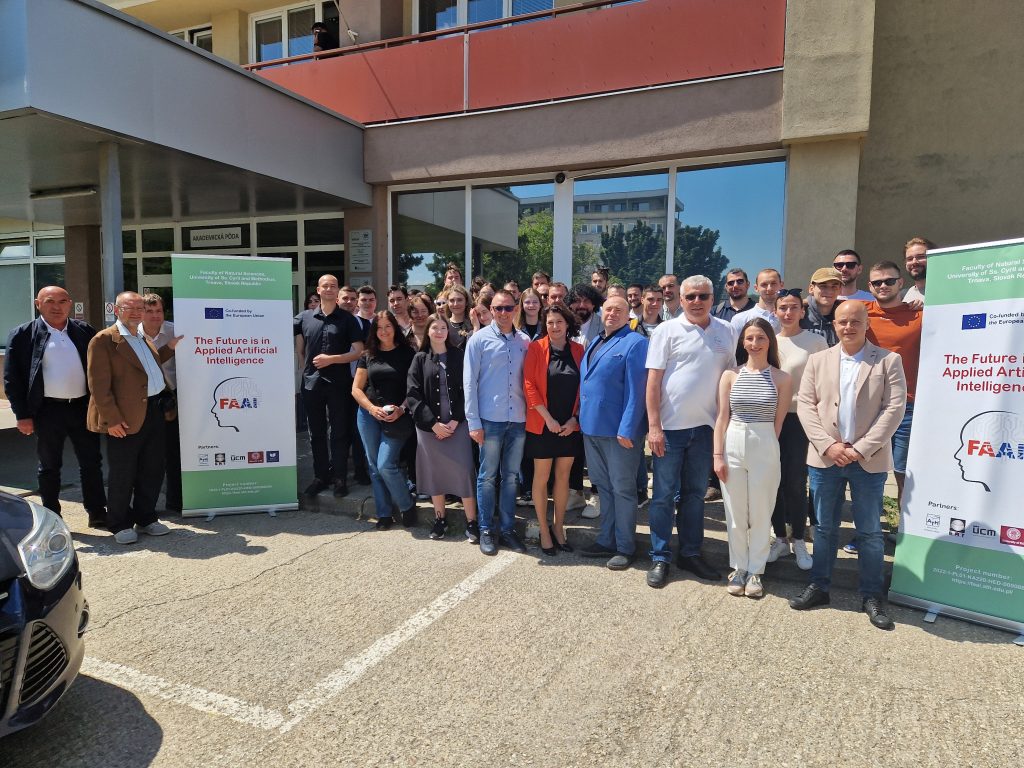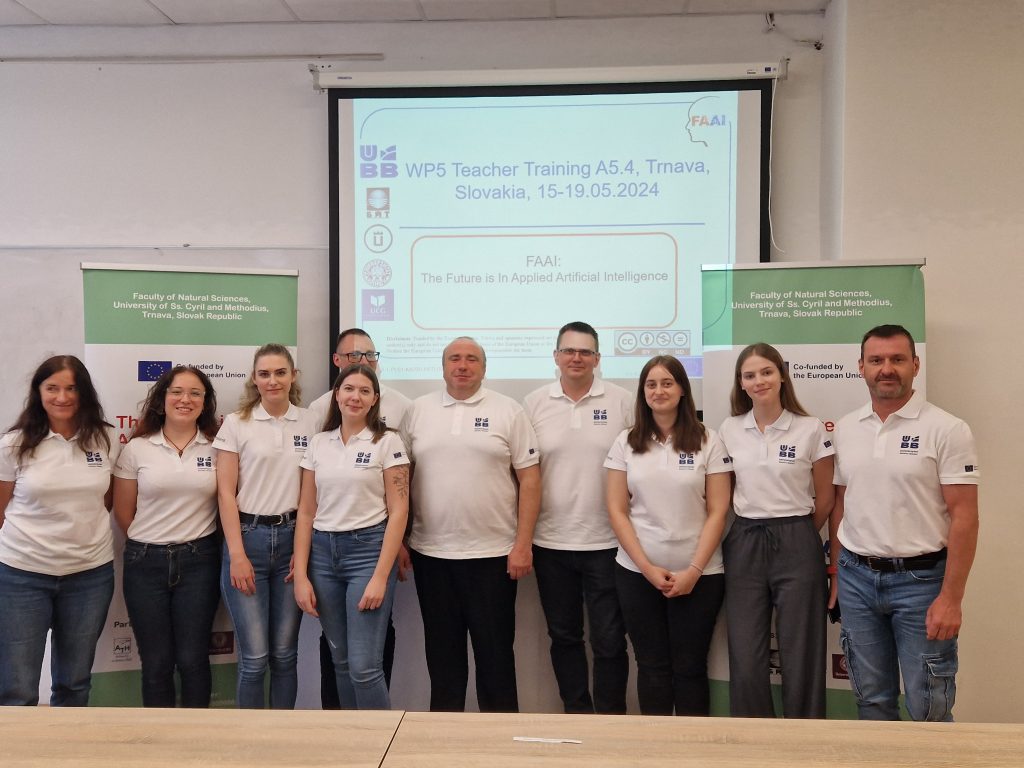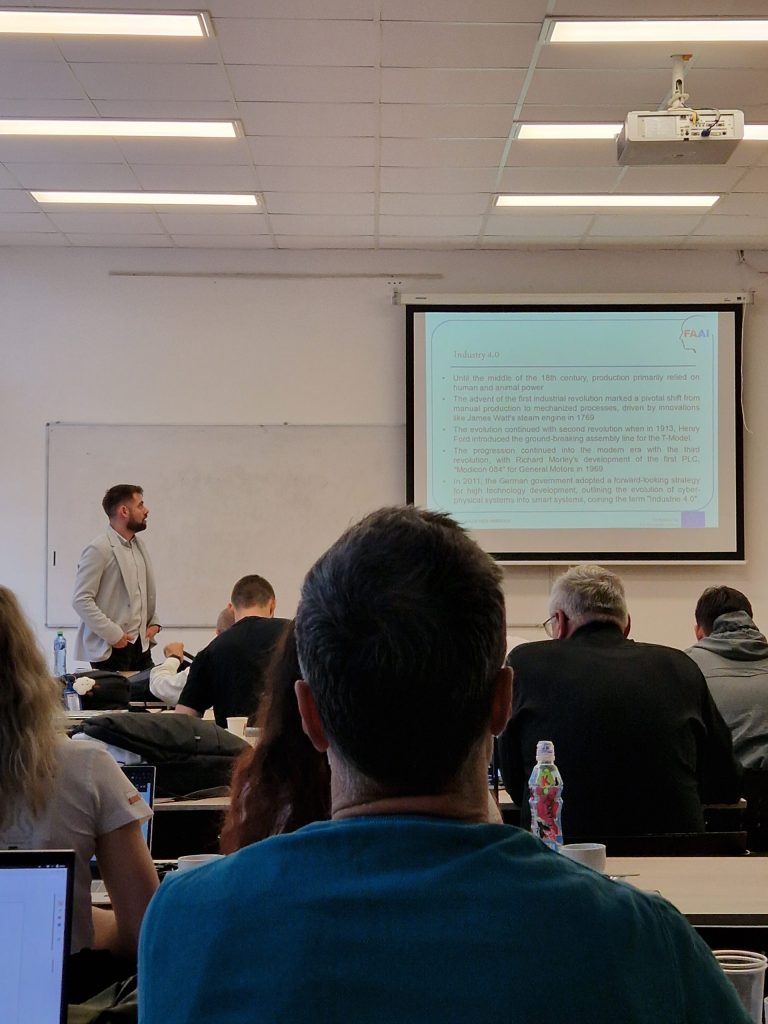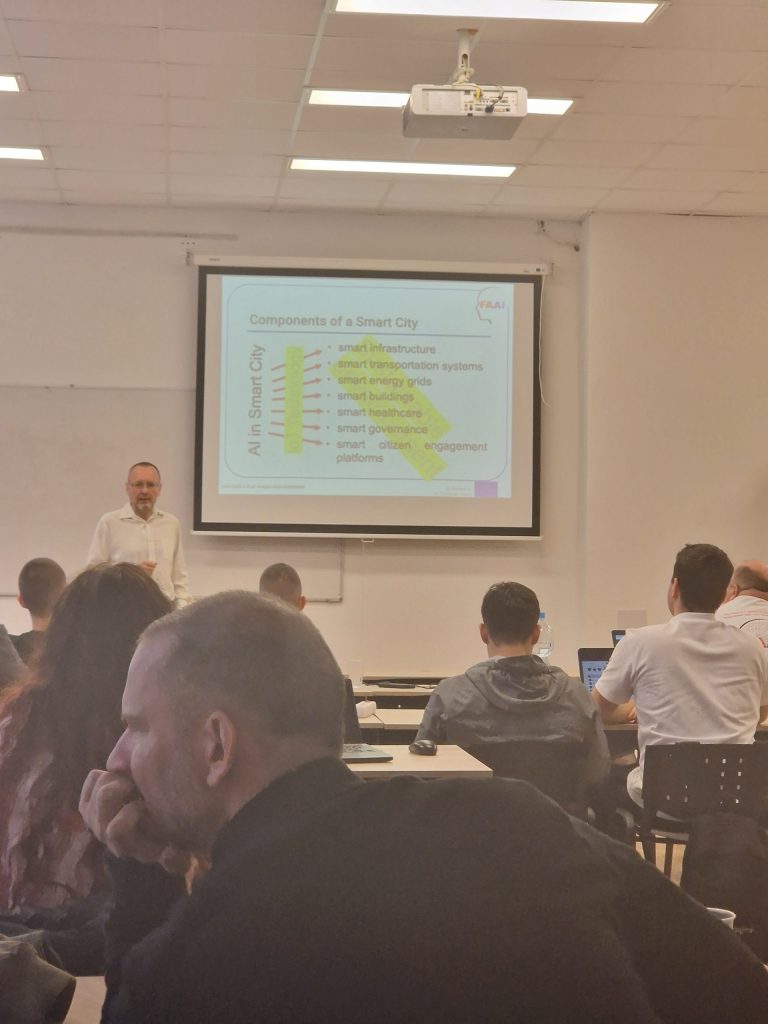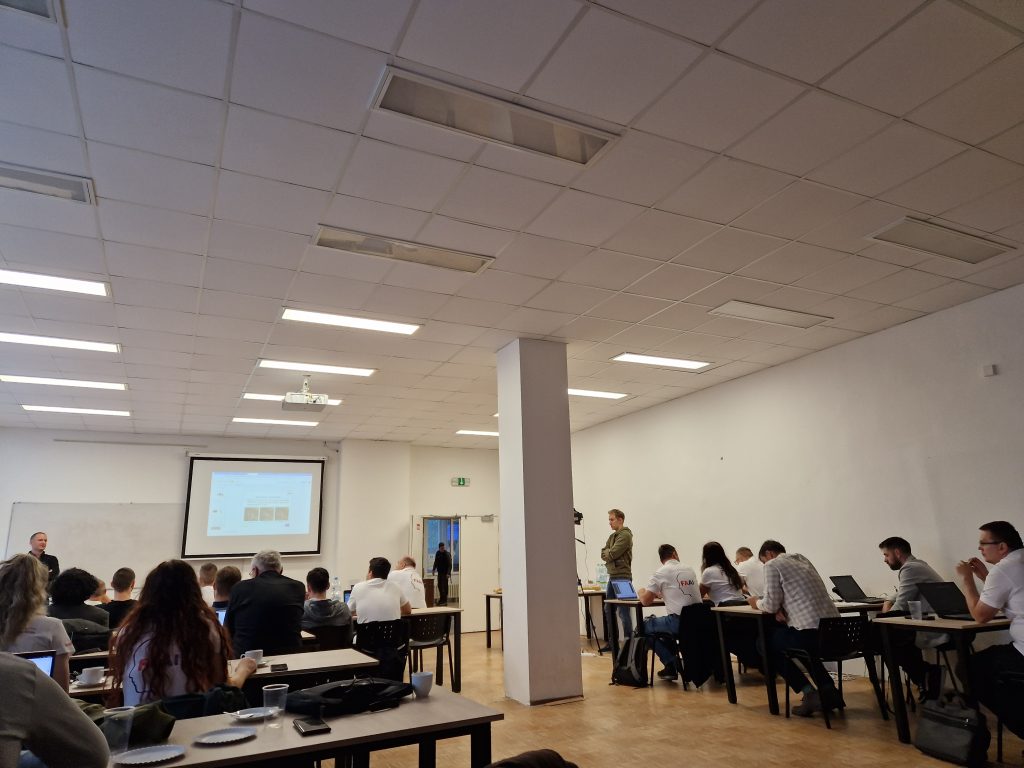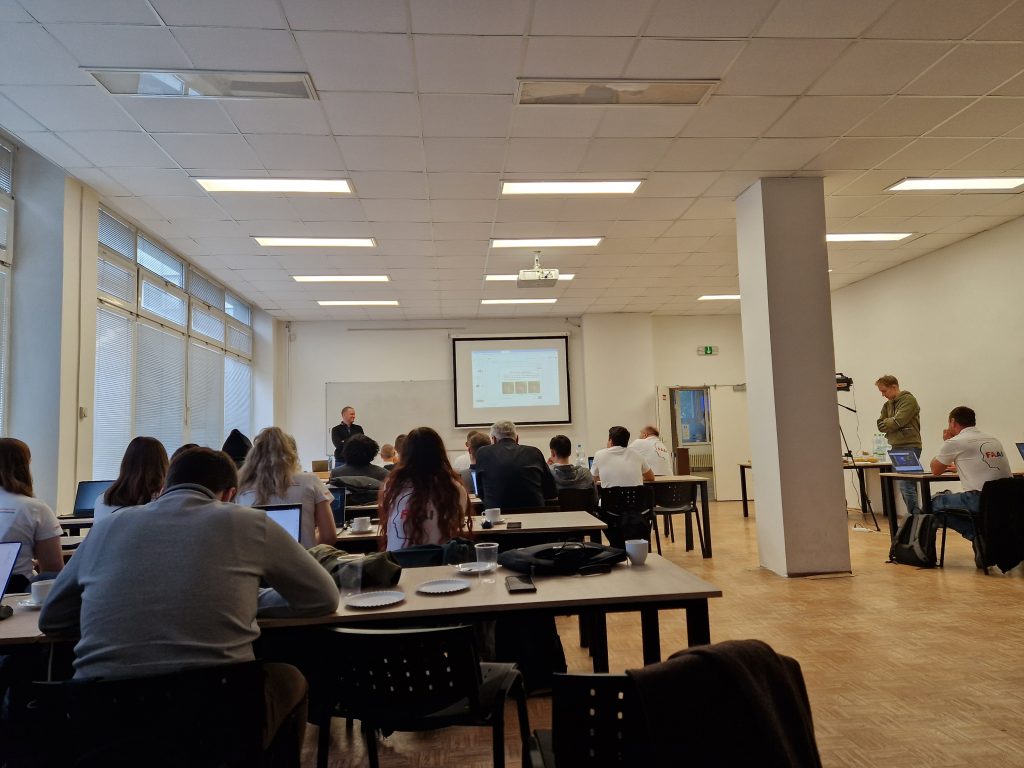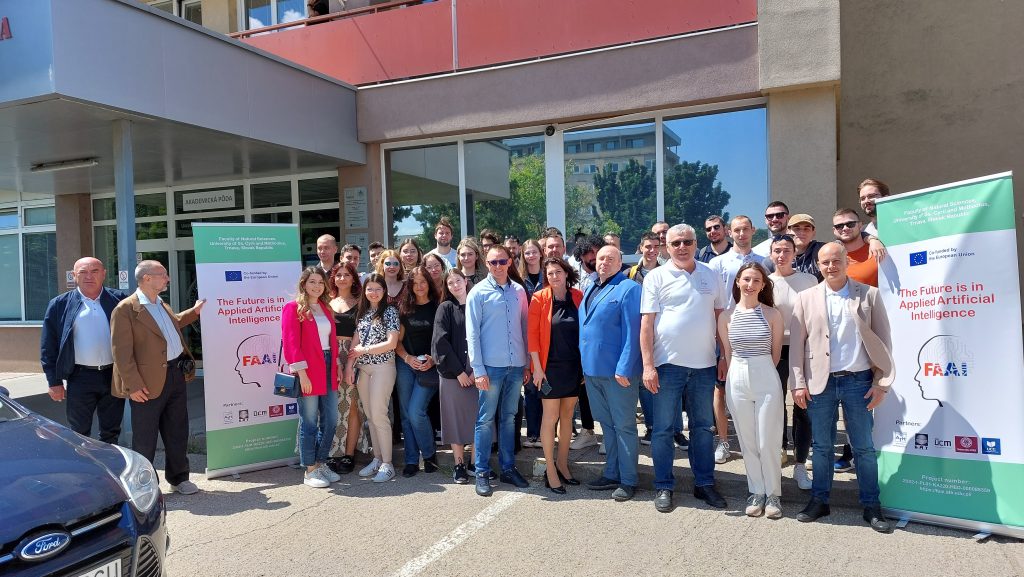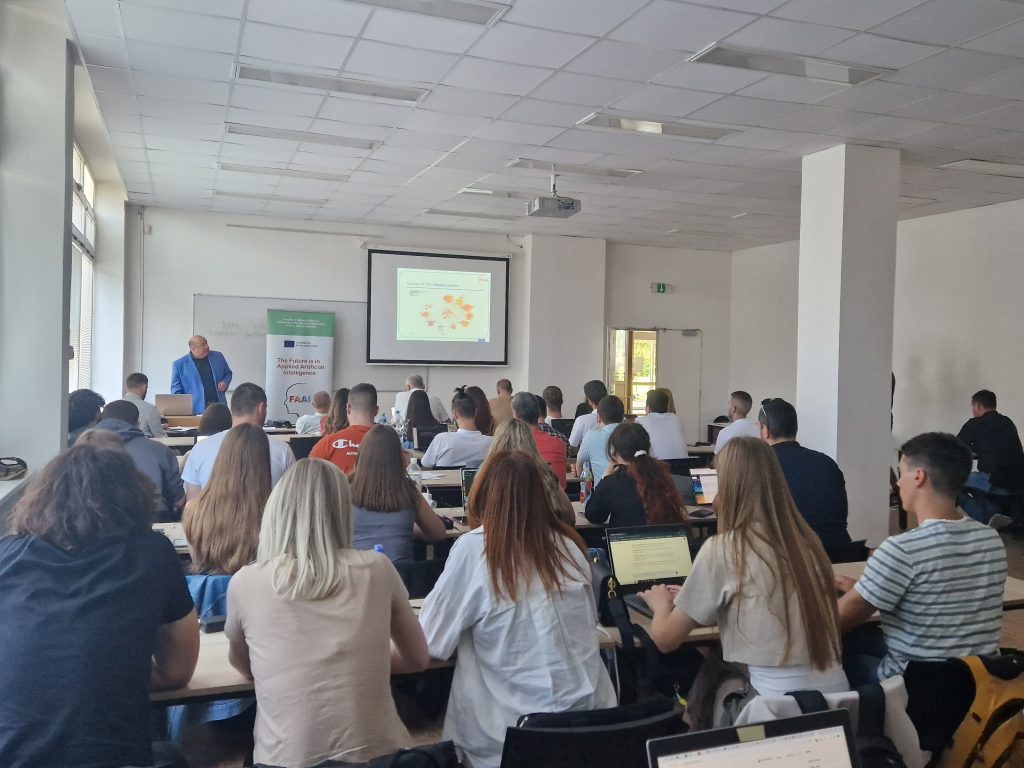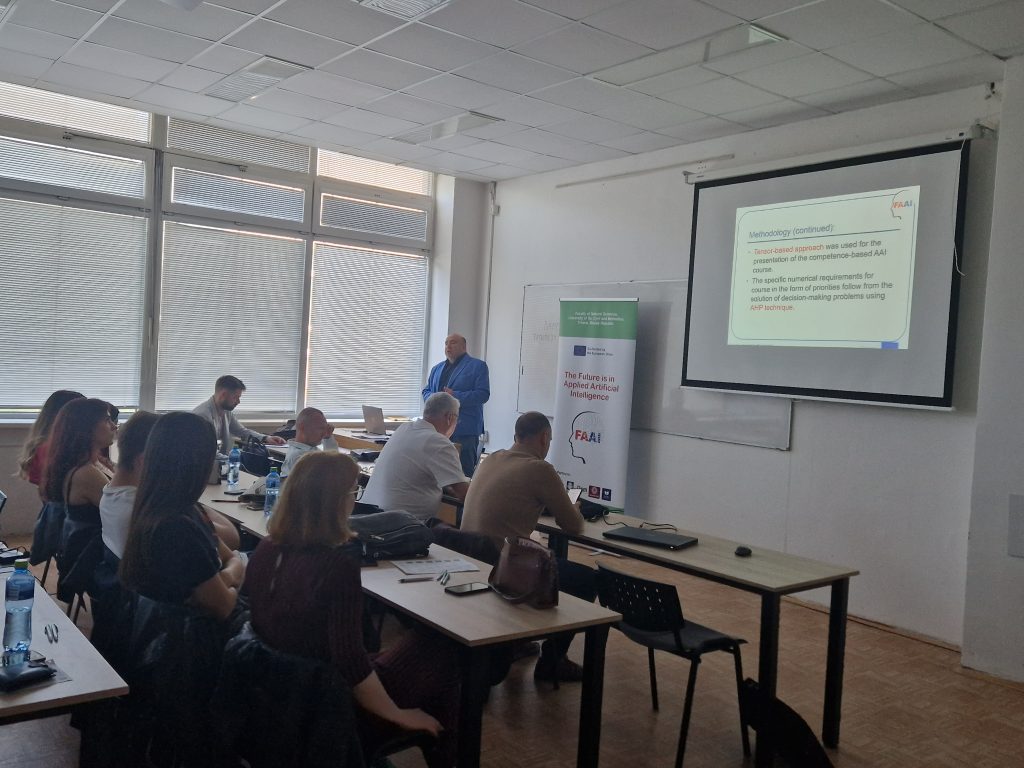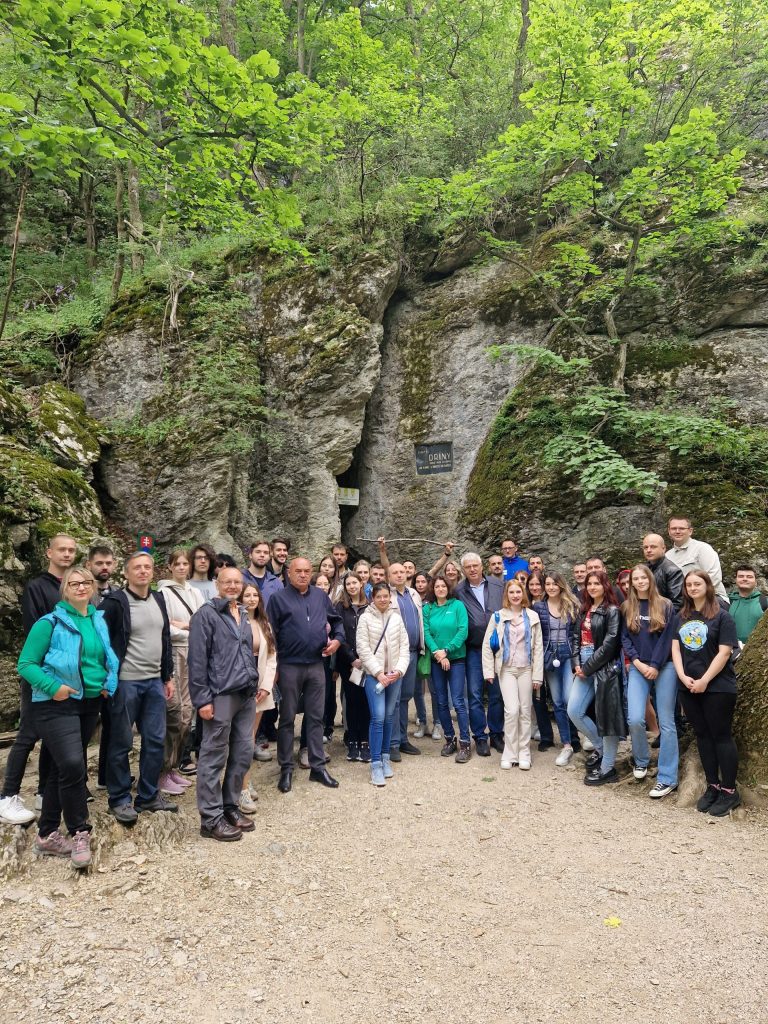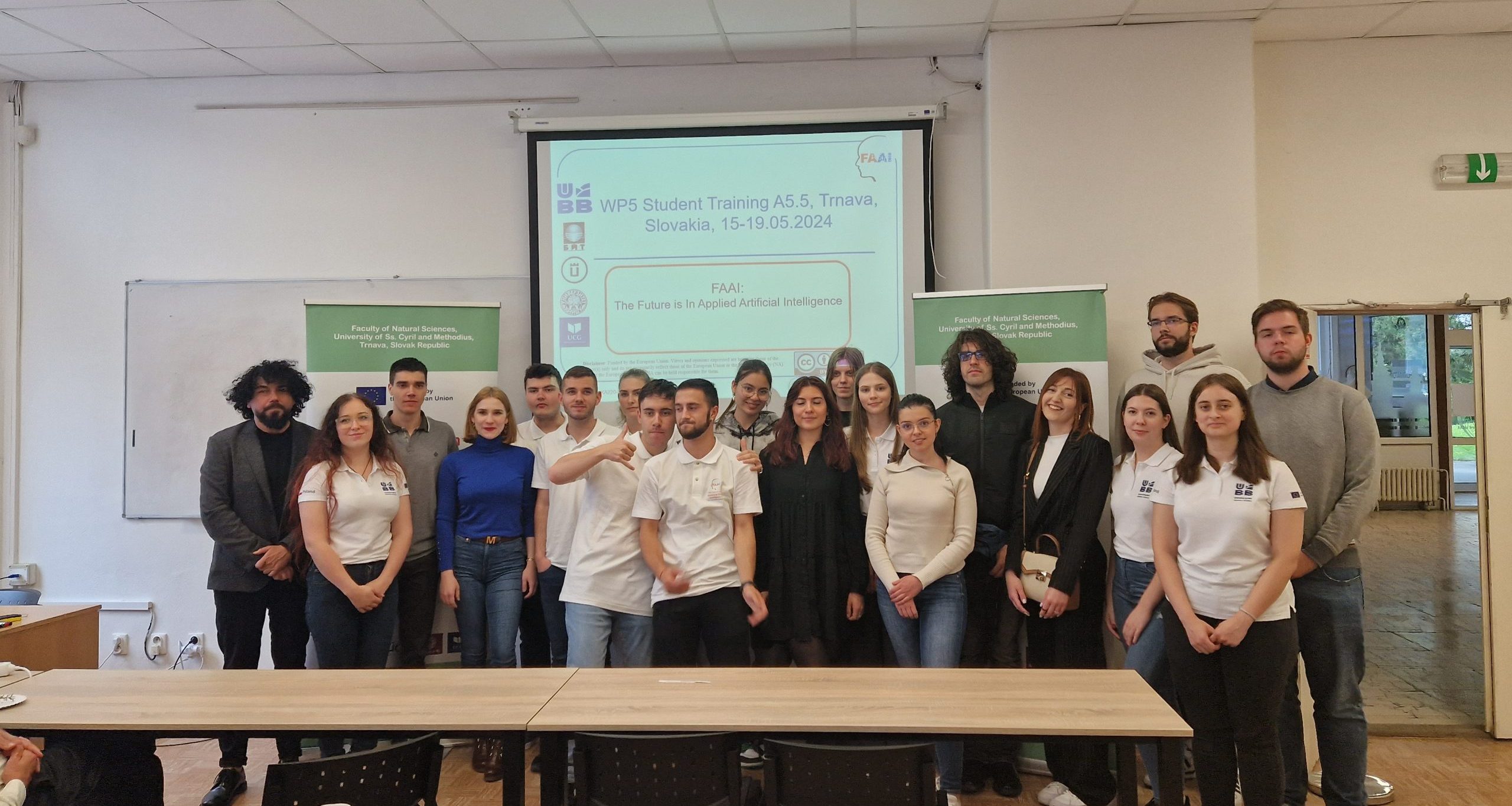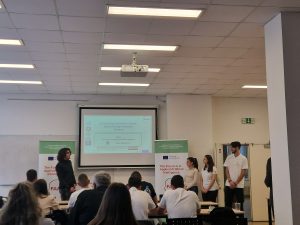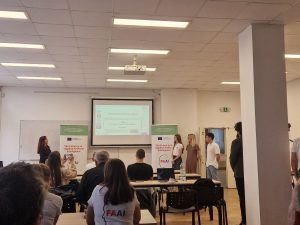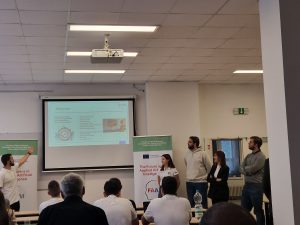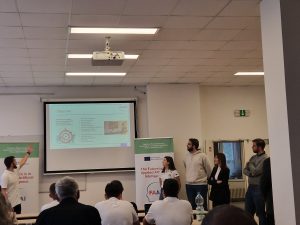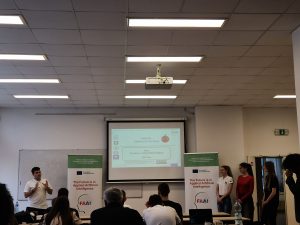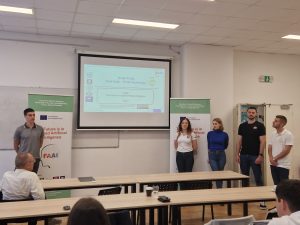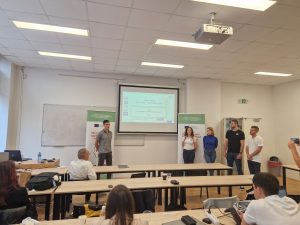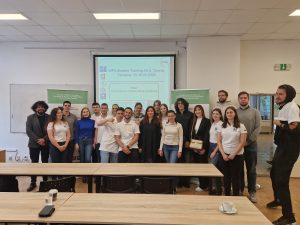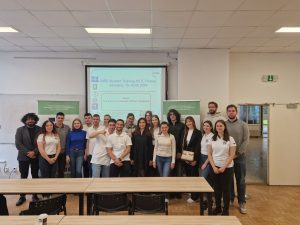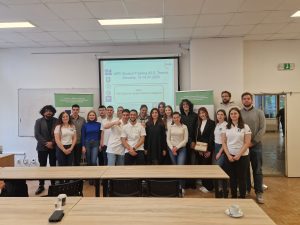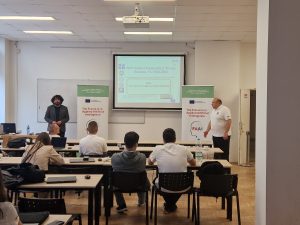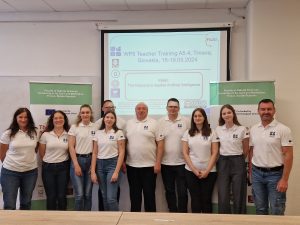A5.7: Final multiplier event
This year’s 12th edition of the Beskid Academic Day conference, organized by the RESET scientific club operating at the University of Bielsko-Bialski, was devoted to topics related to Artificial Intelligence. The event has also become an official event of The Future Is In Applied Artificial Intelligence project, No. 2022-1-PL01-KA220-HED-000088359. The agenda, which included nine AI-related lectures, included the following topics:
| 1. | Inaugural lecture – The Future is in Applied Artificial Intelligence: the outputs of the project FAAI. – prof. dr hab. Vasyl Martsenyuk – UBB | |
| 2. | AI, a threat or… Is it high time to change jobs? Arcadiusz Benedict – Pitney Bowes. | |
| 3. | A brief history of money. Will AI change the monetary system? Roman Majewski Crypto Mines. | |
| 4. | When will AI create a video game? Artur Loska – Fool’s Theory | |
| 5. | Malware vs antimalware. Michał Komendera UBB | |
| 6. | The role of Cryptocurrency Miners in building decentralized AI. Konrad Duszyński – Crypto Mines. | |
| 7. | Does IT have a future in Podbeskidzie? Wojciech Bachta – Da Vinci Studio. | |
| 8. | Artificial intelligence and game design. Marcin Bernaś – UBB | |
| 9. | Copyright and artificial intelligence through the eyes of a lawyer. Marek Nowicki – law firm. |
The conference was officially inaugurated by the Rector of the University of Bielsko-Biala, Prof. Jacek Nowakowski. He familiarized the participants with the structure of the university, individual faculties and faculties. In his speech, he drew attention to the accelerating development of artificial intelligence and its rapidly growing capabilities. Finally, he wished all participants of the conference fruitful and knowledgeable lectures.
During the inaugural lecture, Prof. Vasyl Martsenyuk presented the current state of use of artificial intelligence in various areas of life and familiarized the conference participants with the main assumptions and goals of the FAAI project.
During the lecture entitled Artificial Intelligence and Game Design, Dr. Marcin Bernaś presented the student projects related to AI implemented at UBB and talked about the practical applications of artificial intelligence in game design based on the FAAI project materials on the real applications of AI in IT companies in Europe.
During the conference – in the lobby in front of the conference room – IT companies using AI in their IT products set up their stands:
- SI Record
- Vattenfall from Poland
- Pitney Bowes
- Regional Development Agency
- Infonet Project
- NEXT!
One of the blocks of the conference was a discussion panel on aspects of the FAAI project in the process of teaching AI and its use in the daily work of companies. The panel was attended by: Dr. Tomasz Gancarczyk – UBB (FAAI), Filip Wątorek – Pitney Bowes, Robert Gawlak – SI Record, Przemysław Dana – Vattenfall Polska.
The conference was attended by over 300 participants, who could listen to many interesting lectures related to AI and learn about aspects of its use in the educational process and in projects carried out on a daily basis in IT companies.
In addition to the lectures, participants could also take part in 4 workshops on AI:
| 1. | Process Automation – ChatGPT in the work of a programmer. Filip Wątorek as Pitney Bowes | |
| 2. | Build AI solutions with select Azure AI Services. Krzysztof Burejza – Data Community Podbeskidzie. | |
| 3. | Scrum in practice. Mikołaj Kukurba – Vattenfall Poland. | |
| 4. | Introduction to the world of cyber and pentesting. Michał Kłaput – Foundation 17 53c |
Lectures:
Inaugural lecture – Areas of application of artificial intelligence. FAAI Project – Prof. Vasyl Martsenyuk – UBB
AI, a threat or… Is it high time to change jobs? Arcadiusz Benedict – Pitney Bowes.
A brief history of money. Will AI change the monetary system? Roman Majewski Crypto Mines.
When will AI create a video game? Artur Loska – Fool’s Theory
Malware vs antimalware. Michał Komendera UBB
The role of Cryptocurrency Miners in building decentralized AI. Konrad Duszyński – Crypto Mines.
Does IT have a future in Podbeskidzie? Wojciech Bachta – Da Vinci Studio.
Artificial intelligence and game design. Marcin Bernaś – UBB (FAAI)
Copyright and artificial intelligence through the eyes of a lawyer. Marek Nowicki – law firm.
All companies whose representatives took part in the conference
Beskid IT Academic day
- SI Record
- Vattenfall from Poland
- Pitney Bowes
- Regional Development Agency
- Infonet Project
- NEXT!
- Fool’s Theory
- Crypto Mining Pools
- DaVinci Studio
- FabLab Bielsko-Biała
- BDY PSA
- Selleo
- Iteo
- BlackFrog
- JD Sport Fashion
- UX community
- Data Community Poland
- Kaczmarski Group
- District Road Administration
- WeNet Group S.A.
- inEwi
- MakoLab
- WASKO
- Marek Nowicki Law Firm
- conTeyor
